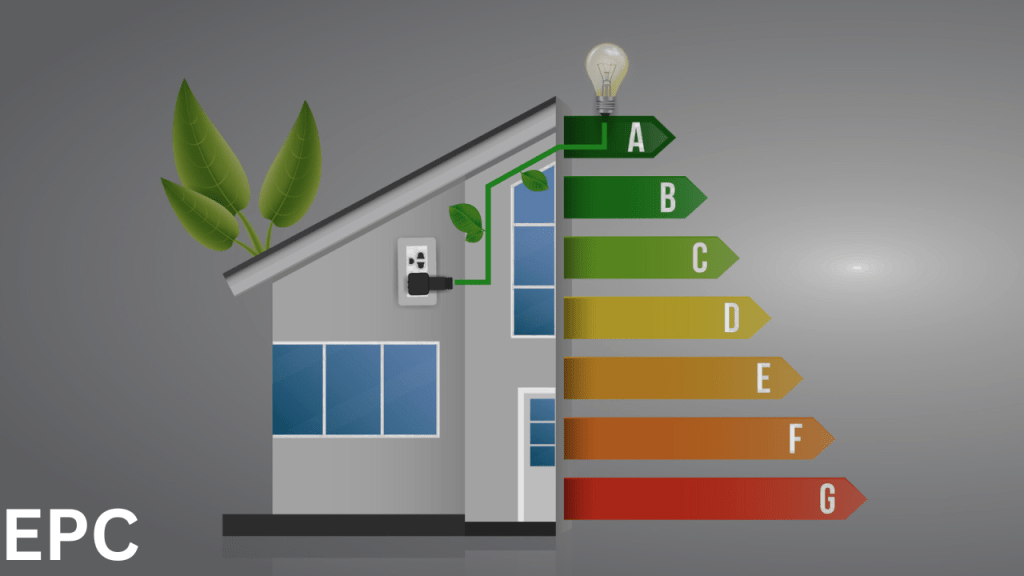You’ve likely encountered the term Energy Performance Certificate (EPC) when considering a property purchase or rental, but have you fully grasped its significance? What Is the Purpose of the EPC? More than just a rating from A to G, it provides key insights into a property’s energy efficiency, impacting your financial and environmental commitments.
Why Is the Energy Performance Certificate Important? An EPC doesn’t just comply with legal requirements—it affects market value, energy costs, and carbon footprint. A high rating can reduce bills and guide future property investments. Understanding a property’s energy footprint could influence your next big decision.
Understanding EPC Ratings
Energy Performance Certificates (EPCs) rate how energy efficient a building is, giving it a score from A (most efficient) to G (least efficient).

As you delve deeper into EPC ratings, you’ll realize they’re not just arbitrary letters. Each rating encapsulates specific energy usage metrics, which are pivotal in determining how a building consumes energy. The ratings are calculated based on factors such as insulation quality, heating systems, and renewable energy installations.
You might wonder how these ratings are derived. A certified assessor conducts a thorough audit of the property, examining elements like windows, boilers, and lighting systems.
They use standardized methods to ensure consistency across evaluations, which include inputting data into software that calculates the building’s energy efficiency.
Impact on Property Value
Over time, the Energy Performance Certificate (EPC) rating of a property can significantly influence its market value. A high rating not only enhances market perception but also aligns with evolving buyer preferences toward energy-efficient living spaces.
As you delve deeper into the real estate market, understanding this relationship becomes crucial. A property with a superior EPC rating often commands a higher price. This is due to the perceived long-term savings on energy costs and the growing demand for environmentally friendly living solutions.
Market analysis reveals that properties with better EPC ratings can attract a premium, reflecting a shift in consumer priorities towards sustainability and efficiency. Conversely, properties with lower EPC ratings may face challenges in attracting buyers, as their appeal diminishes in a market increasingly driven by energy consciousness.
This can result in longer sale times and potentially lower sale prices. As a savvy investor or homeowner, integrating energy performance into your property evaluation or improvement strategy is essential.
Reducing Energy Costs
Improving your property’s Energy Performance Certificate (EPC) rating can lead to significant reductions in energy costs. Achieving higher energy efficiency isn’t just about using less energy; it’s about optimizing your property’s systems for maximum performance with minimal waste. This approach not only reduces your energy bills but also increases the longevity and efficiency of your home’s systems.

Consider the direct correlation between EPC ratings and average energy costs. An improved rating, signifying higher energy efficiency, often results in lower energy expenditures. Here’s a breakdown to illustrate potential cost savings across different EPC ratings:
| EPC Rating | Average Annual Energy Cost | Potential Savings |
|---|---|---|
| A | £500 | £300 |
| B | £800 | £200 |
| C | £1,000 | £100 |
| D | £1,200 | £50 |
| E | £1,450 | £0 |
These figures highlight how enhancements in energy efficiency can translate into tangible cost savings. Investing in energy-efficient solutions, like improved insulation or advanced heating systems, directly impacts these figures, driving down your costs. As you contemplate these investments, consider both the immediate and long-term benefits of a superior EPC rating. This strategic approach not only optimizes your expenditures but also contributes to a sustainable future.
Legal Requirements and Compliance
While considering the potential savings from improving your property’s Energy Performance Certificate (EPC) rating, it’s also important to understand the legal frameworks governing these certifications.
Navigating these legalities isn’t just about compliance; it’s about optimizing your investment in property energy efficiency.
Firstly, you’re required to have a valid EPC when selling or renting out a property. This certificate must be shown to prospective buyers or tenants. Failure to provide an EPC can lead to significant legal penalties, including fines.
Here’s what you need to consider:
- Mandatory Disclosure: Before completing a sale or lease, you must disclose the EPC rating. Non-disclosure can attract fines and complicate legal proceedings in property transactions.
- EPC Exemptions: Some properties, like listed buildings, might be exempt from requiring an EPC. Understanding these exemptions is crucial to avoid unnecessary expenditures on certifications that aren’t legally mandated.
- Penalties for Non-Compliance: Ignoring the requirement for an EPC can result in fines up to £5,000, dependent on the value of the property involved.
It’s vital to ensure your property complies with these regulations to avoid these penalties and streamline your property transactions.
Being proactive in understanding and applying these legal requirements not only secures compliance but also enhances the marketability of your property.
Environmental Benefits

Why should you care about the environmental benefits of enhancing your property’s Energy Performance Certificate (EPC) rating? Elevating your EPC rating not only boosts the asset value of your property but also significantly diminishes your carbon footprint. This direct reduction in greenhouse gas emissions is crucial in the global effort to mitigate climate change impacts.
By optimizing energy usage, you’re participating in a larger, more critical movement toward sustainability awareness. Each step towards a higher EPC rating involves the adoption of energy-efficient technologies and practices that contribute less to environmental degradation and more to sustainable living environments. This isn’t just about compliance; it’s about taking proactive steps to ensure that your property uses resources more efficiently and responsibly.
Furthermore, advanced EPC ratings often use renewable energy sources which further decrease dependence on fossil fuels, thereby reducing both your property’s operational costs and its environmental impact.
Conclusion
In conclusion, securing a high EPC rating not only boosts your property’s market value but also significantly slashes your energy expenses. It’s crucial you understand and comply with these regulations to avoid legal penalties. By prioritizing energy efficiency, you’re not only saving money but also contributing to environmental sustainability. Remember, enhancing your EPC is an investment in both your financial future and the planet’s health. So, don’t overlook the importance of these certificates.









